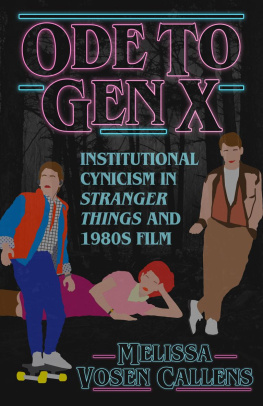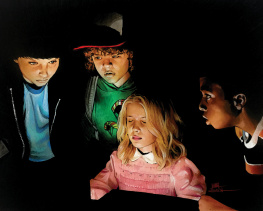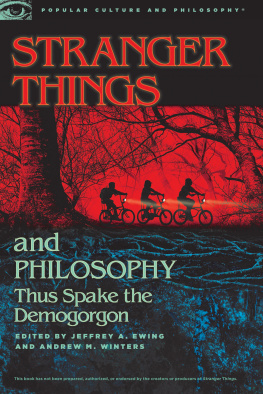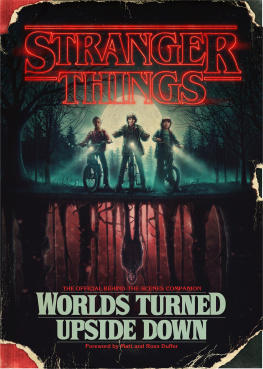The University Press of Mississippi is the scholarly publishing agency of the Mississippi Institutions of Higher Learning: Alcorn State University, Delta State University, Jackson State University, Mississippi State University, Mississippi University for Women, Mississippi Valley State University, University of Mississippi, and University of Southern Mississippi.
www.upress.state.ms.us
The University Press of Mississippi is a member of the Association of University Presses.
Copyright 2021 by Melissa Vosen Callens
All rights reserved
Manufactured in the United States of America
First printing 2021
Library of Congress Control Number: 2021930385
Harback ISBN 978-1-4968-3241-2
Trade paperback ISBN 978-1-4968-3242-9
Epub single ISBN 978-1-4968-3243-6
Epub institutional ISBN 978-1-4968-3244-3
PDF single ISBN 978-1-4968-3245-0
PDF institutional ISBN 978-1-4968-3246-7
British Library Cataloging-in-Publication Data available
Acknowledgments
This book would not have been possible without the support I received from a variety of people. As such, I would like to thank them and the furry friends listed below.
Thank you to my husband, Nate Callens, who binged (and re-binged) with me Stranger Things and all of the films referenced in this book. Throughout this process, he listened thoughtfully to my observations and ongoing analysis, never complaining when I replayed a scene more than once. Additionally, he designed the books cover. His cover perfectly captures the spirit of the book!
Thank you to the staff of the University Press of Mississippi. You all have been wonderful to work with, in particular Katie Keene. For her guidance during the process, I am grateful.
Thank you to my friend and colleague, Dr. Brian Hough, who started this project with me and served as a sounding board as I drafted each chapter.
Thank you to my colleagues at the Popular Culture Association who provided me with valuable feedback over the last couple of years. You have welcomed me to your area, generational studies, and I am thankful. I have learned so much from each and every one of you.
Thank you to my mom who, despite never seeing Stranger Things, asked about the project weekly, ultimately serving as my loudest cheerleader. When days were long and the project was stalled, she reminded me how much I have always enjoyed writing and how I have always enjoyed popular culture.
Thank you to my three devon rex cats: Huey Lewis, Joan Jett, and Stevie Nicks. They listened to many proofreads and provided me with snuggles when I needed them the most.

1

Youre the Inspiration
Gen X and Stranger Things

It took some time to name the generation immediately succeeding the Baby Boomer generation (194664), the generation that would eventually be known as Generation X (Gen X). In 1993 generational scholars Neil Howe and Bill Strauss suggested the name Thirteeners (in reference to the generation being the thirteenth generation after the American Revolution), but the name never quite stuck. In 1993 they published their first major think piece about the unnamed cohort, calling it 13th Gen: Abort, Retry, Ignore, Fail? According to Howe and Strauss, the subtitle was in reference to a computers response to a missing or damaged file. They chose this subtitle because they believed it reflected how the country treated Gen Xers, seeing them as a missing or damaged generation (Lavin). Even though Howe and Strausss proposed name was never widely used to describe this generational cohort, how they described the generation was. The descriptors missing and forgotten would come to summarize not only the worlds view of Gen X, but also Gen Xs view of themselves.
The lexical origins of Gen X are somewhat debatable. According to Raymond Gozzi, author of The Power of Metaphor and New Words and a Changing American Culture, the first use of the phrase Generation X was in the 1970s as the name of Billy Idols band in London (331). This, however, was not the first time the name was uttered. The name first appeared in a Robert Capa photo essay about coming-of-age teenagers after World War II (Raphelson), and Billy Idol attributed the name of his band (the more widely known reference) to a 1964 book titled Generation X. The book features candid interviews with postwar Baby Boomer teenagers and was authored by British journalists Jane Deverson and Charles Hamblet. Despite its popularity, the book was out of print by the late 1960s, and the phrase was all but extinct for nearly two decades.
Most credit the naming of the postBaby Boom generation to Canadian author and artist Douglas Coupland, more specifically his 1991 novel Generation X. The inspiration for the books title was not Idols band as many at the time surmised; rather, the inspiration for his book was a 1983 academic book titled Class: A Guide Through the American Status System by literary historian Paul Fussell. Coupland reflects on that book: In his final chapter, Fussell named an X category of people who wanted to hop off the merry-go-round of status, money, and social climbing that so often frames modern existence. The citizens of X had much in common with my own socially disengaged characters; hence the title (Generation Xd). Coupland believed the title reflected the spirit of his primary characters, as the X descriptor allowed his characters to be not only mysterious and complex individuals but also part of a larger disenfranchised group (Generation Xd). These qualities, he believed, accurately reflected young adults in the late 1980s and early 1990s.
In his novel, Coupland tells the stories of three Gen Xers as they struggle with their transition into adulthood. For example, in the novel the narrator describes an incident in which one of the main characters, Dag, vandalizes a car with graffiti: The car was the color of butter and bore a bumper sticker saying WERE SPENDING OUR CHILDRENS INHERITANCE, a message that I suppose irked Dag, who was bored and cranky after eight hours of working his McJob (Low pay, low prestige, low benefits, low future) (Generation X, 5). While the 1980s saw an increase in low-wage jobs, Gen Xers transitioning into adulthood, like Dag, were one of the groups that suffered most. Gen Xers often felt disadvantaged, particularly compared to their Boomer parents, as Gozzi states: Xers feel they were born too late. All the good jobs are gonetaken by
















 1
1 